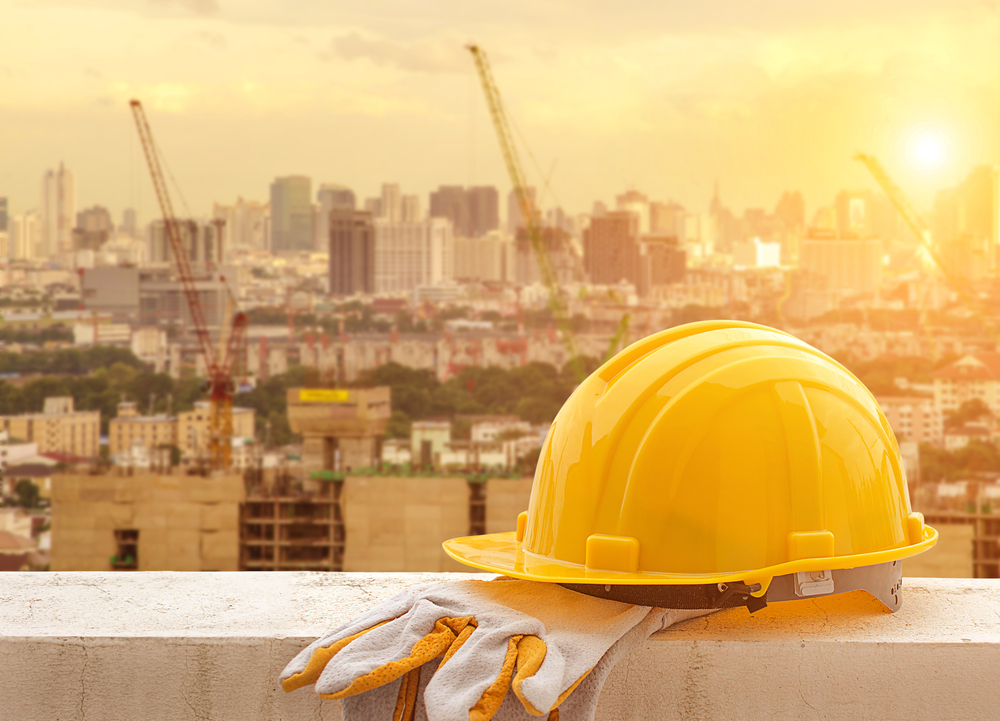Fear of Heights: Are Your Workers Acrophobic?

What Is the Fear of Heights?
Fear of heights, aka acrophobia, is one of the most prevalent phobias. Acrophobia occurs when someone feels uncomfortable in high places. It can also incite feelings of panic, stress, or worry in someone who thinks about being in a high place.
Acrophobia can cause people to question their balance, even when they’re standing on stable ground. The fear can result in sweating, heart palpitations, and other physical symptoms. It can lead people to avoid situations in which they may be required to spend time in a high place, too.
What Causes Fear of Falling from Heights?
It is normal for people to feel uncertain when they travel to high places. However, acrophobia is an extreme fear of heights that may develop on its own or over time.
Some researchers indicate acrophobia can be a learned response from a prior fall. So, if an individual falls from heights and experiences a serious injury, he or she may be susceptible to acrophobia.
In addition, acrophobia may arise due to a parent’s nervous reaction to a child’s exposure to heights. For example, if a child goes to a high place and their parent expresses fear and worry, their son or daughter may be likely to do the same. This behavior could continue as a child gets older, leading to a long-lasting fear of heights.
How to Overcome Fear of Heights
If you believe any of your aerial lift operators are dealing with a fear of heights, provide support. To do so, encourage an aerial lift operator coping with a fear of falling from heights to meet with a mental health professional. Then, this operator can undergo an acrophobia evaluation and receive a proper diagnosis.
There is no one-size-fits-all approach to treat acrophobia. Rather, one or more treatment options may be considered, including:
✓ Exposure Therapy: Involves gradual exposure to heights to help someone eventually overcome their fear.
✓ Cognitive Behavioral Therapy: Requires reframing of negative thoughts and feelings surrounding a fear of heights.
✓ Medications: Can be used to alleviate anxiety and panic related to acrophobia; medications won’t address the fear but can help people limit its impact.
Along with these treatment options, you can encourage your aerial lift operators to come forward if they believe acrophobia is affecting their ability to maintain a safe work environment. That way, you can ensure your aerial lift operators can receive the help they need to manage their fear of heights and any other issues that can hamper workplace safety.
Do’s and Don’ts for Working at Heights
OSHA-approved certification training ensures your aerial lift operators can limit risk. It also provides these operators with insights into the following do’s and don’ts for working at heights.
Do’s
- • Perform pre-site inspections.
- • Wear fall protection equipment.
- • Watch for power lines and other overhead safety hazards.
- • Follow OSHA aerial lift safety guidelines.
Don’ts
- • Work in heavy winds or other harsh weather conditions.
- • Use an aerial lift on an unstable surface.
- • Exceed the lift’s weight capacity.
- • Override any of the lift’s safety devices.
OSHA-compliant aerial certification training goes beyond the do’s and don’ts for working at heights. The training empowers aerial lift operators with the skills and knowledge they need to remain safe and productive. And the training can help your business avoid OSHA compliance fines and penalties as well.
Enroll Your Workers in Aerial Lift Certification Training from ALC
A fear of falling from heights can cause serious problems for your aerial lift operators. But OSHA certification training may help your aerial lift operators reduce their fear of heights.
Your workers can use this training to become comfortable operating an aerial lift. Plus, the training ensures your workers can operate a lift in accordance with OSHA standards. The result: your workers can guard against falls and other aerial lift accidents, and your company can comply with OSHA requirements.
If you need aerial lift certification for your workers, AerialLiftCertification.com can help. We offer comprehensive certification training that can teach your aerial lift operators how to safely complete tasks at heights. Get started with one of our certification training programs today!
